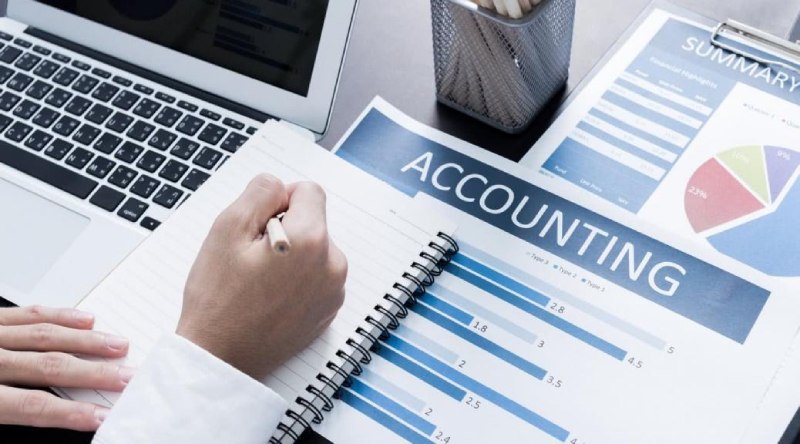A straightforward meaning of “accounting”
Accounting is the means by which your business records, arranges, and comprehends its monetary data.
You can consider accounting a major machine that you put crude monetary data into—records of all your deals, charges, projections, and so forth—that then, at that point lets out a straightforward anecdote about the monetary condition of your business.
Estudio contable reveals to you whether you’re making a benefit, what your income is, the thing that the current worth of your organization’s resources and liabilities is, and what portions of your business are really bringing in cash.
Accounting versus accounting
Accounting and accounting cross-over from various perspectives. Some say accounting is one part of accounting. Yet, assuming you need to split them up, you could say that accounting is the means by which you record and classify your monetary exchanges, though accounting is effectively utilizing that monetary information through examination, technique, and duty arranging.
The accounting cycle
Accounting starts the second you enter a deal—any action or occasion that includes your business’ cash—into your organization’s record.
Recording deals this way is essential for accounting. Also, accounting is the initial step of what bookkeepers call the “accounting study”: an interaction intended to take in crude monetary data and let out precise and predictable monetary reports.
The accounting cycle has six significant advances:
Dissect and record exchanges (investigating solicitations, bank articulations, and so forth)
Present exchanges on the record (as per the standards of twofold passage accounting)
Plan changing passages toward the finish of the period
Set up a changed preliminary equilibrium
Get ready budget reports
The majority of these standards and cycles are robotized by accounting programming, so we will skirt the non-essential pieces of information of the accounting cycle and talk about the finished result: fiscal reports.
Fiscal summaries
Fiscal summaries are reports that sum up how your business is getting along, monetarily.
There are three primary sorts of budget reports: the monetary record, pay proclamation, and income articulation. Together, they disclose to you where your business’ cash is, and how it arrived.
Suppose you’re an independent riding teacher who charges customers for riding exercises. Budget summaries can stop for a minute your most beneficial months are, how much cash you’ve spent on provisions, and what the all out worth of your business is.
Fiscal summaries can be created decently effectively utilizing accounting programming, or you can have a clerk do it for you.
Proper accounting rules (GAAP)
Each organization is unique, yet to make precise monetary correlations between organizations, we need a typical language to portray every one of them. That is the thing that proper accounting rules (GAAP) are: a progression of principles and methods that bookkeepers at all organizations should stick to while getting ready fiscal reports.
GAAP are set by a nongovernmental body called the Financial Accounting Standards Board, and there are no laws implementing them, however most moneylenders and colleagues in the United States will necessitate that you hold fast to GAAP (in case you’re in Canada, you’ll utilize an alternate framework called International Financial Reporting Standards, or IFRS.)
The various kinds of accounting
Monetary accounting
Consistently, your organization will create fiscal reports that individuals outside of your organization—individuals like financial backers, banks, government offices, evaluators, possible purchasers, and so forth—can use to study your organization’s monetary wellbeing.
Setting up the organization’s yearly fiscal summaries this way is called monetary accounting.
Administrative accounting
Administrative accounting is like monetary accounting, with two significant special cases:
The assertions created by administrative accounting are for interior utilize as it were.
They’re produced considerably more often—frequently on a quarterly or month to month premise.
On the off chance that your business at any point develops to where you need to enlist a bookkeeper full-time, the greater part of their time will be taken up by administrative accounting. You’ll be paying them to create reports that give ordinary reports on the organization’s monetary wellbeing and assist you with interpretting those reports.
Duty accounting
Assessment accounting is directed by the Internal Revenue Service (IRS), and the IRS lawfully necessitates that your expense accounting stick to the Internal Revenue Code (IRC).
Expense accounting is tied in with ensuring that you don’t pay more duty than you are lawfully needed to by the IRS.
Cost accounting
You’re doing cost accounting at whatever point you’re attempting to sort out some way to expand your edge, or choosing if raising costs is a smart thought.
Cost accounting includes examining the entirety of the expenses related with delivering a yield (regardless of whether it be an actual item or administration) to settle on better choices about valuing, spending and stock.
Cost accounting takes care of into administrative accounting, since administrators utilize cost accounting reports to settle on better business choices, and it likewise takes care of into monetary accounting, since costing information is regularly required when aggregating a monetary record.
Credit accounting
Credit accounting includes examining the entirety of an organization’s neglected bills and liabilities and ensuring that an organization’s money isn’t continually restricted in paying for them.
Credit accounting can be perhaps the most troublesome sorts of accounting to progress admirably, in light of the fact that it ordinarily includes advising somebody something they would prefer not to hear (like your bookkeeper revealing to you that you ought to get less.)
Why accounting matters for your private venture
Accounting assists you with getting ready for development
Each extraordinary excursion starts with a guide. At the point when you’re arranging your organization’s development, it’s vital for put forward objectives. What should your benefits resemble one year from now? What about in five years?
Fiscal summaries let you appropriately survey how rapidly your business is creating. Without exact budget summaries, it very well may be enticing to count on simple measurements like “deals development,” which don’t give you the full monetary picture.
Has your expense of merchandise sold expanded? Are edges more slender? Are your development objectives sensible? Without budget reports, you will not have a goal answer.
Accounting is fundamental for getting an advance
Exceptional fiscal reports show where your organization stands. They’re fundamental assuming you need to subsidize your private venture with an advance.
For example, assume you need to apply for a Small Business Association (SBA) advance through one of the huge banks. Overall, three years of budget summaries, in addition to a one-year income projection. It’s essentially difficult to convey any of these in the event that you don’t have an accounting framework set up.
You need accounting to get financial backers or sell your business
You may not be intending to court financial backers or sell your business at this moment. Yet, it’s a smart thought to leave your choices open. Furthermore, the most ideal approach to do that is to set up a legitimate accounting framework now.
Possible financial backers or purchasers will expect accounting records that demonstrate your business is beneficial and on target for development. These records ought to be given by a CPA.
Accounting assists you with getting paid
At the point when a client owes you cash, it shows up as Accounts Receivable (AR) on your monetary record. This is either ready by accounting programming or your bookkeeper.
The asset report discloses to you the amount of your AR you’ve effectively stashed during the month, and what amount is as yet remarkable.
By alluding to your accounting report, you can follow how successfully you’re gathering installment. Then, at that point you can set up measures—more earnestly installment cutoff times, or better development with customers—to ensure you get your hands on target you’ve procured when you need it.



